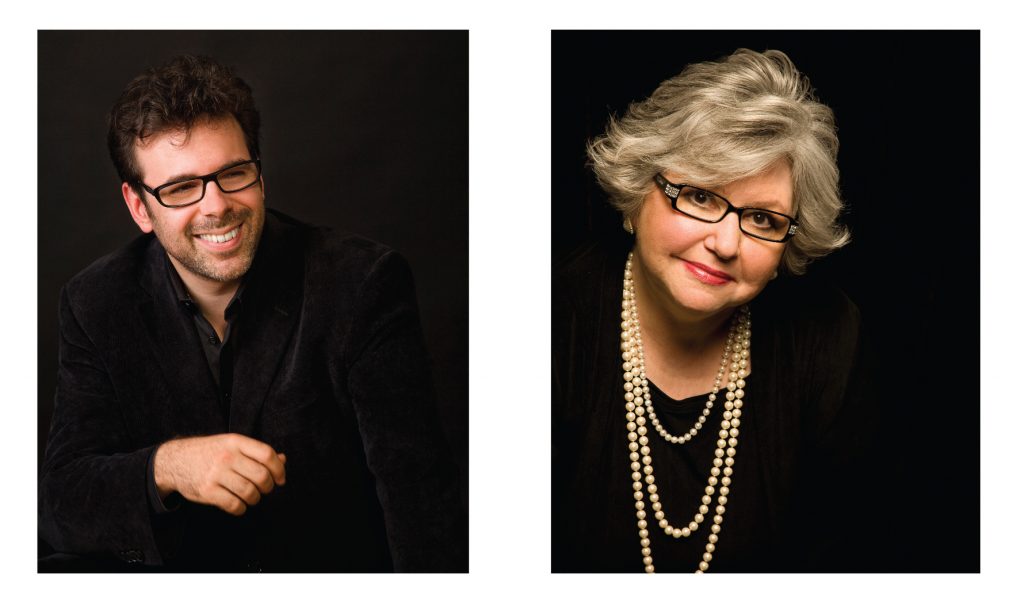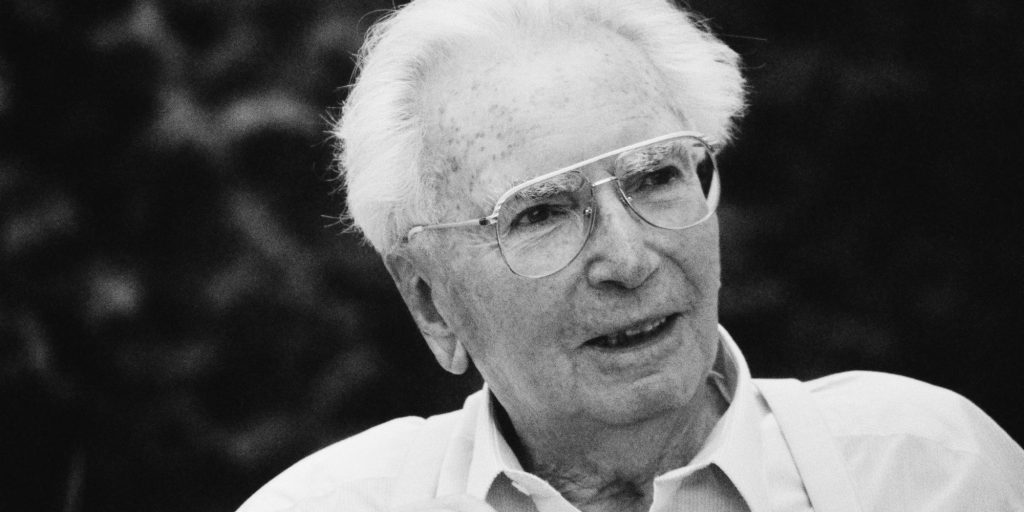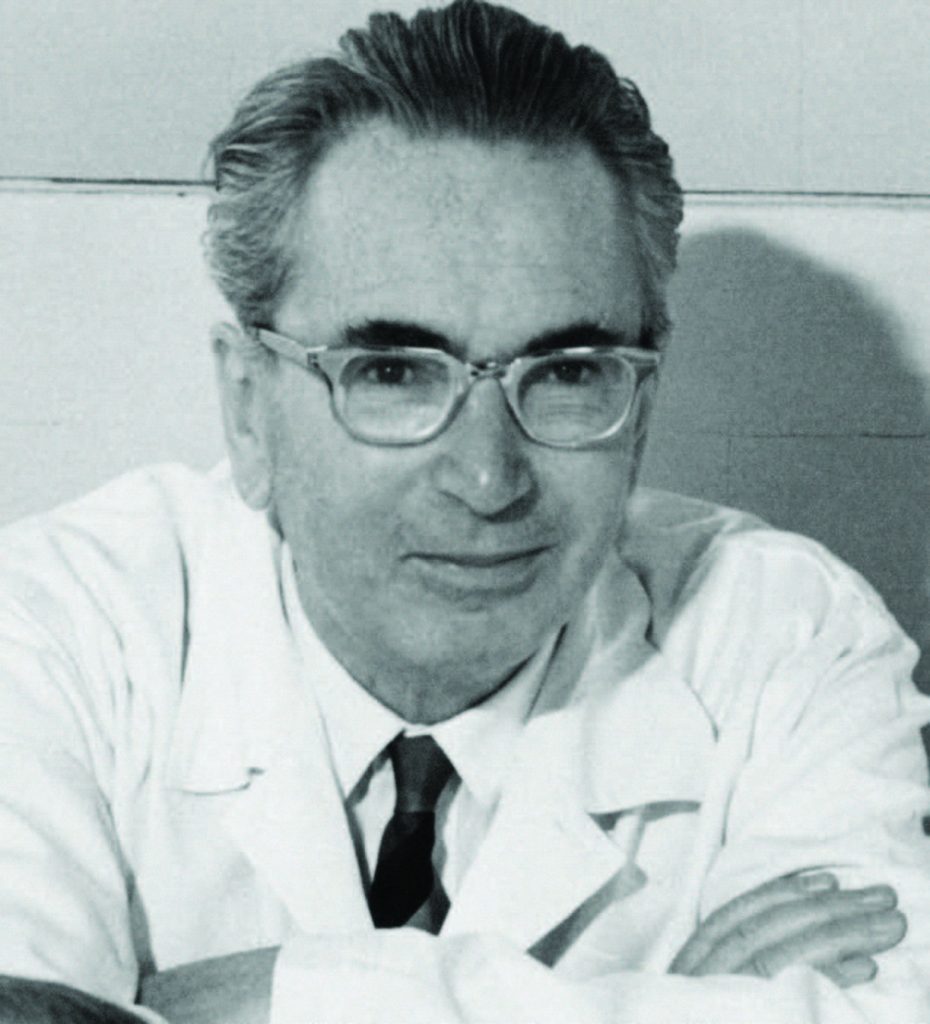Viktor Frankl and the Search for Meaning: A Conversation with Alexander Vesely and Mary Cimiluca
“When we are no longer able to change a situation, we are challenged to change ourselves.”
“Everything can be taken from a man but one thing: the last of the human freedoms—to choose one’s attitude in any given set of circumstances, to choose one’s own way.”
--Viktor E. Frankl, Man’s Search for Meaning
Few books of the last century have had a greater impact on our quest for meaning than Viktor Frankl’s Man’s Search for Meaning. This all-time bestseller was written by a Jewish man who had just lost everything in the Holocaust. When Frankl, emaciated from concentration camps, returned to his beloved Vienna, no one was there to meet him. His mother had been gassed at Auschwitz. His brother had been killed in another camp. His wife, Tilly, had starved to death in the women’s camp at Bergen-Bergen. Now, he wondered, what was the point of his life?
“I decided not to commit suicide—at least not before I had reconstructed my first book, The Doctor and the Soul….” After Frankl finished that book, friends who read it asked him to write another, this time about his experience in the concentration camps. He poured out Man’s Search for Meaning in just nine days, weeping in an empty room with windows bombed out from the war. Seventy years later, the book remains a classic textbook for college students and a guidepost for people all faiths. A nun told me that Mother Teresa encouraged her novitiates to read Man’s Search for Meaning as part of their spiritual formation. The book was listed as one of the ten most influential books in America by the Library of Congress.
As a professor, I have assigned Man’s Search for Meaning to college students for over twenty years. Recently I invited Frankl’s grandson Alexander Vesely to screen his film Viktor & I at the university. I interviewed him and Mary Cimiluca, Frankl family advisor and CEO of Noetic Films, which produced the movie, for a forthcoming book.
–Fran Grace
Portrait of austrian psychologist Viktor Frankl, Photograph, 1994 (Photo by Imagno/Getty Images)
Fran Grace: Did your grandfather see your potential as a filmmaker?
Alexander Vesely: He actually gave me my first video camera! It’s a funny story about a side of him that we all knew. He was a very generous man. One time he was in a radio store. There was a man in the store asking to see various models of radios and the prices. Hearing the prices, the man said, “Oh forget it, I can’t afford it.” So my grandfather, standing next to him, said, “Pick the one you like, I’m going to pay for it.” He bought the man a radio, but it wasn’t just to be “nice.” It was for the meaning of it. He said, “I have the money, what’s the most meaningful place for my money to be? Do I need the extra fifty bucks or would it be more meaningful if this man had those fifty bucks?”
FG: Frankl shared his money easily?
AV: To such a point that my parents told my sister and me not to utter anything that could be bought in his presence! Not to say, “I’d like this or that.” Because he would go buy it. There was only one time that I consciously broke that rule. I was fourteen, and video cameras were starting to come down in price. I said, “It would be really great to have one of these video cameras.” A few days later, as I knew it would, the phone rang and my grandfather said, “Tell Alex to come over.” So I went over and he said, “I heard that you need a video camera and I’m going to make that happen.” There was a discussion with my parents, of course. They knew what I was doing. But by that time it was too late! I shot a lot of footage of my grandfather with that camera, some of which you see in Viktor & I.
FG: Mary, what is your story?
Mary Cimiluca: I read Man’s Search for Meaning in college in the 1960s and then I met Viktor Frankl in 1987. But it wasn’t until 2008 that I really “got” Frankl—my life fell out from under me. One after the other, every member of my family died. When I thought it couldn’t get any worse, my best friend was brutally murdered and I had to go identify the body. I lost my mind and landed in a psych ward in D.C. I was mandated to stay for twenty-one days and be in the care of a psychiatrist. He said, “I want you to read this book, Man’s Search for Meaning.” I said, “Get out of here with that book, I know all about that book, it’s not going to save me now!” But he told me, “Your life parallels his and someday you’ll realize it.” That was true.
He let me out when I wrote up my “business plan” for a new life. At that point, I was safe from suicide. At fifty-eight, I wasn’t fond of change. But, six weeks later, I had sold my house, moved to a sunny place across the country, knowing no one, sight unseen, to retire at the beach. My feeling of being settled lasted three months. I started to deteriorate, sitting at home crying. It’s what Frankl calls an “existential vacuum.” I decided to go back to work in a business I owned that did recording for conferences all over world. That’s how I met Alex, in 2008.
The work of Frankl for me is personal. His work saved my life.
FG: How did Frankl help you recover from your breakdown?
MC: We all have to face suffering, and we have to realize that ours may be different from another’s. Frankl said, “Never compare suffering. Everyone has their own Auschwitz.” He always put himself on the same level as those he encountered.
Frankl gave us three ways to uncover meaning. “Creative” way—write a book, make a movie, create a business, etc. “Experiential” way—encounter another person, love them in their singularity and uniqueness, or go somewhere that changes your life. “Attitudinal” way—this is the path for those who face unavoidable suffering such as an incurable illness or the death camps. You can’t escape the condition, but you can choose your attitude toward it and fill it with meaning: an inner triumph. All three of these ways helped me to uncover the meaning in my life.
FG: What is logotherapy [the school of existential therapy developed by Frankl]?
AV: Logos comes from the Greek word “meaning”; therapy is “healing”: “Healing through meaning.” Frankl created logotherapy as a young psychiatrist working with suicidal patients, before he was deported to the concentration camps. We are meaning-oriented beings, and we long for meaning. If we struggle, we will become better if we find something meaningful that fills what he called the “existential vacuum.”
Although he struggled to have faith in humankind after the war, Frankl ended up, in logotherapy, affirming a theory of humanity that seeks to elicit the potential for good and for meaning. He would always assume the best in others, even those who assumed the worst about him. This is a basis in his theory of logotherapy: to look for the best in people. He would say, “If you take a man as he is, you make him worse. If you take a man as he can be, you help him become who he can be, the best version of who he is.” And of course he meant “women” too—he used the language of the time.
He was not interested in the worst version of anyone and how we can analyze that. My grandfather focused in on the “best version” of you and acted as if you were already there. This had an uplifting effect on people.
Still, he wasn’t stupid, he wasn’t one-sided. I want to be clear that he didn’t deny the horrors of humanity. How could he? He had come out of the worst savagery. He would say: “After all, man is that being who invented the gas chambers of Auschwitz; however, he is also that being who entered those gas chambers upright, with the Lord’s Prayer or the Shema Yisrael on his lips.”
There’s a Hitler and a Mother Teresa in all of us, he would say. And it’s a personal decision which of the two we’re going to let ourselves become.
Viktor Frankl, 1965
FG: What is Frankl’s message to young people, when depression, suicide, and drug overdoses are at an all-time high?
AV: He saw it as a prerogative of youth to question the meanings and values handed down from previous generations. As a youth, my grandfather questioned the “orthodoxies” of his day. His life was challenging. But he never gave up on life. Or on himself. He said that it was our responsibility to find the meaning in what we face. “We all have a will to meaning in us.” He said that the “will to pleasure” (Freud) and the “will to power” (Adler) do not define the human being. They do not bring happiness or fulfillment. If you try to pursue happiness for its own sake, it will elude you. Happiness “ensues” when you fulfill something that is meaningful to you. It is through that seemingly paradoxical process of “self-transcendence”—forgetting oneself—that real “self-actualization” becomes possible.
The will to meaning is there in everyone, but sometimes it gets warped. Other things cover it over, and you have to uncover it. Always—even in old age. My grandfather really started going at age sixty! He started taking flying lessons when he was sixty-six. He was always open to new ways of seeing the world and experiencing himself. The opportunities for meaning are different at every stage of your life.
Abraham Maslow, in his “hierarchy of needs,” said that once basic needs (food, shelter) are met, then the intangibles such as love, meaning, and self-actualization can be fulfilled. But my grandfather disagreed. He told Maslow how people did not have their “basic” needs met in the concentration camps, but it was the “higher” needs (i.e., meanings, love, and values) that proved to be much more relevant to their chance of survival. Maslow revised his ideas and said, “Frankl is right.” My grandfather emphasized that it’s not about “having what you need to live” but asking yourself, “What am I living for?” The most affluent societies have all their basic needs met, but they lack something to live for, and neurotic disorders tend to increase.
FG: Your grandfather was very popular at American universities. Packed auditoriums. What did he say that struck such a chord?
AV: Frankl said there are three problems facing youth. One is aggression, killing and harming each other. Look at all of the violence. Then there is depression, to the point of suicide, wanting to die. And the third is addiction, trying to escape from life through pleasure, diversion—drugs, drinking, any kind of excessive behavior.
FG: What did he say was the way out of these problems?
AV: Meaning orientation. If you have meaningful tasks to fulfill, you will not hurt yourself. If you see that your life has meaning, then you respect that life, you feel a responsibility to preserve it. First, he said, if you don’t see a meaning, the meaning of the hour is to go find one, seek, be on a quest. Make it a priority. Then, if you still don’t see it over a long period of time, and perhaps you are even contemplating suicide, then the meaning of the hour becomes to at least stay alive despite the apparently meaningless situation just so that you will still be around when meaning again becomes visible. There’s never a situation where there is no meaning, if you give it time and look close enough. Let’s say you are going through severe depression and you can’t go out and search for a meaning. If you commit to staying alive, you will then be here when your meaning is made clear. People who attempt suicide and survive say they eventually did find a meaning and are glad they are still alive to live it out.
FG: People criticize Frankl for saying there is meaning to be found in the concentration camp. Is that what he said?
AV: No. That’s a misunderstanding. He wrote very concisely. He wanted to make his books as simple as possible, so that anybody could read them. But then people take an already boiled-down statement, remove a key phrase and say something like, “Your grandfather said Auschwitz had a meaning too!” That is a distortion of what he said. He said, “If you are confronted with unavoidable suffering, what can you learn from the situation? What meaning can we now squeeze out of this seemingly meaningless situation?” He did not say the situation itself was meaningful. But maybe a meaning can be derived by understanding what led to the Holocaust, so we have a chance to prevent it from ever happening again. ♦
From Parabola Volume 42, No. 1, “The Search for Meaning,” Spring 2017. Parabola is a not-for-profit organization that. Four times a year for over thirty-five years it has gathered the wisdom of the world's spiritual traditions to illuminate the central questions of life. Fran Grace serves as professor of religious studies and steward of the meditation program at the University of Redlands in California.
SHARE YOUR REFLECTION
4 Past Reflections


On Apr 15, 2017 DenisKhan wrote:
Dr Robert Aziz says, Suffering has a syndetic paradigm. Suffering can be meaningless as well as meaningful.
A classic incident of the Syndetic Paradigm in suffering is the response of the two criminals nailed to the Cross on either side of Jesus Christ. (Luke 23:32, 39 -43).
32 And there were also two other, malefactors, led with him to be put to death.
39 And one of the malefactors which were hanged railed on him, saying, If thou be Christ, save thyself and us.
40 But the other answering rebuked him, saying, Dost not thou fear God, seeing thou art in the same condemnation?
41 And we indeed justly; for we receive the due reward of our deeds: but this man hath done nothing amiss.
42 And he said unto Jesus, Lord, remember me when thou comest into thy kingdom.
43 And Jesus said unto him, Verily I say unto thee, Today shalt thou be with me in paradise. One criminal rebelliously succumbed to his fate; the other repented and was forgiven.

On Apr 14, 2017 Somik Raha wrote:
Wow! This is an amazing article, thank you for sharing. Had never heard of logotherapy before. Frankl was a true gift to humanity.

On Apr 14, 2017 Kay wrote:
I, too, read this book in my youth when feeling immortal and found it inspiring. But, it wasn't till heading into my mid 60s while working through life itself and working in hospice that I started to understand his work. He is truly a gift for our time and a man who clearly saw the divinity and grace in life itself and all that it gives us!




On Apr 23, 2017 Ted wrote:
I had been putting off reading Man's Search for Meaning...until I read this interview. I finished the book today and am moved deeply by Viktor Frankl's timeless humanity and compassion for the plight of being human in this world.
Facing my own existential challenge, I am grateful for this nudge, and for Viktor Frankl himself.
“And what about man? Are you sure that the human world is a terminal point in the evolution of the cosmos? Is it not conceivable that there is still another dimension, a world beyond man’s world; a world in which the question of an ultimate meaning of human suffering would find an answer?” Viktor Frankl
Post Your Reply